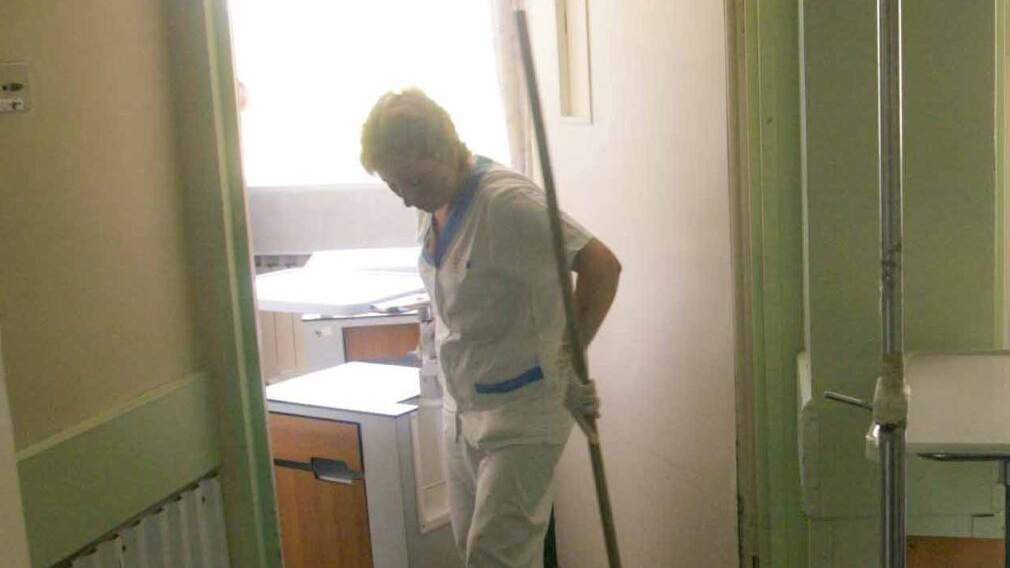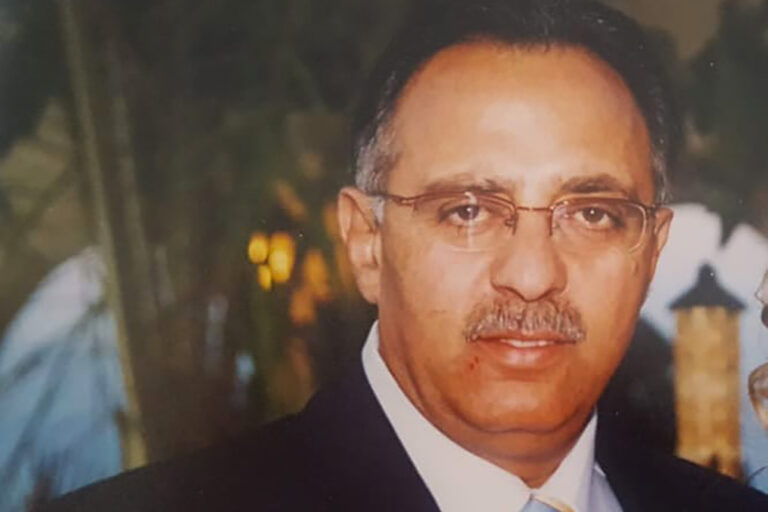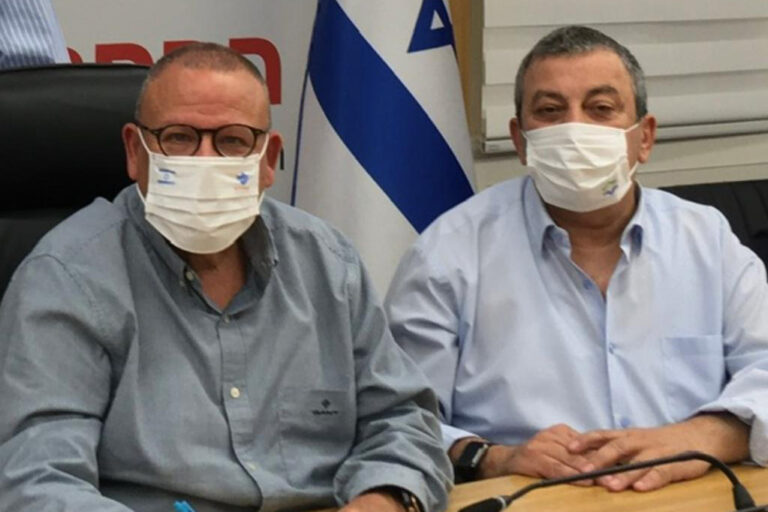
Efraim Ezra, an administrative manager at a Clalit Health Services branch in the northern town of Tzfat, will receive a pay increase next month for the first time in 12 years.
The collective agreement that was signed by the Histadrut last week will increase the salaries of some 15,000 administrative and facility employees of the Clalit HMO, most of whom are earning at the lowest wage levels within the organization.
The path there was not simple, and included a stand-off with the Finance Ministry and even a strike, whilst simultaneously managing the the Coronavirus pandemic.
“We worked like crazy, just so there wouldn’t be a shortage”
As the chairman of the Clalit Workers’ Union for the Northern District of Israel, Ezra represented the administrative and facility employees on the negotiation team that brokered a collective agreement with upper management and the Finance Ministry. He reflects on the non-stop work employees encountered during the pandemic. “We worked as if we were in a war,” Ezra explained.
“We knew that in order to return to routine life, the COVID-19 vaccination drive in the north had to be successful. Me and my colleagues worked insane hours – from seven in the morning until midnight. Logistics personnel frantically plowed through the roads in order to deliver swabs and PPE (personal protection equipment), to ensure that there would not be a shortage. Each and every person’s contribution to this effort was tremendous.”

The time during the pandemic reminded Ezra of his experiences during the second Lebanon war in 2006.
“Just as when the north of Israel was bombarded by Katyusha rockets at the time [from Hezbollah], we acted with the same sense of national unity. The patients and the residents of the north are dear to us and we had to act for them,” Ezra said.
But a sense of national unity, support and recognition from the Israeli public does not pay the bills. Ezra described how wages in his field have stagnated for over a decade.
“Our salaries are very low. It has been 12 years since we have received a pay increase, and even still our salaries are very low,” said Ezra.
“While all the other sectors of the economy have seen pay increases, many workers [at Clalit] left due to the low salary. Clalit employs people with undergraduate degrees in economics or health systems management, and no one is willing to work for this wage. Our base salary was lower than minimum wage, and we would receive supplementary income to bring it to minimum wage.”
The Finance Ministry did not want to sign the agreement
The ‘administrative and facility workers’ heading roughly groups together 15,000 workers of Clalit that comprise its entire medical system. It includes such positions as maintenance personnel, cleaning staff, kitchen, secretaries, medical transporters, hospital auxiliary personnel, logistics and garden workers, engineers and academics. The salaries of most of them are low, and have stagnated during the past decade.

The increase in salary for employees was agreed upon two years ago between the Histadrut and the upper management of Clalit, and was built into the HMO’s budget. But the agreement has yet to be implemented until now due to the refusal of the Finance Ministry to sign the agreement.
The Finance Ministry worried that approving such an agreement would set a precedent and lead to demands for wage increases for administrative and facility workers in public hospitals. This fear ostensibly comes from a government decision from the 1990s that stipulated that the salaries of administrative and facility workers in public hospitals must be equal to that of their counterparts at Clalit.
The Judge Ruled: “A Strike will be Benefit the Workers”
When the coronavirus pandemic began and a national state of emergency was declared, the workers refrained from taking any action against mangement in order to support efforts to halt the spread of the virus. Discussions on the agreement were tabled. “As an organization, we had to learn to be responsible,” says Ezra, “we didn’t know how the pandemic would affect the healthcare system.”
A year after the outbreak of the coronavirus, Clalit workers decided to renew their campaign for a wage increase. They threatened to strike. Clalit’s management asked the Tel Aviv Regional Labor Court to issue an injunction against the potential strike. The management claimed that it had already approved the agreement and that responsibility over the matter fell to the Finance Ministry’s Director of Wages.
Judge Yafit Mizrachi Levi denied the request and stated in her ruling that, “the court is of the impression that a strike will advance the interests of the respondents and may influence the negotiations between the two sides.” The workers went on a cautionary eight-hour strike to demonstrate their seriousness and ability, which led to a series of rulings by the Labor Court.
The Histadrut Chairman Decided to Exclude the Workers from the Salary Freeze
Representatives of the Finance Ministry claimed that they had to wait for the Knesset’s approval of the state budget and for approval of the agreement. Months went by, and in early November the state budget was approved, and along with it the agreement that had been signed between the government, the Histadrut, and the employers’ organizations.

The agreement included a public-sector wage freeze in 2022, cutting wage increases for certain groups of workers and saving approximately 500 million shekels ($160 million). However, this specific stipulation excluded healthcare workers. Histadrut Chairman Arnon Bar-David announced that a large portion of this sum would be allocated for improving working conditions in the healthcare system. “We’re talking about dedicated workers who work tirelessly,” said Bar-David, “both in normal conditions and especially during the pandemic.”
Members of the workers’ union felt that the Finance Ministry was dragging its feet on approval of the agreement and threatened to go on another strike. The strike was canceled following additional negotiations. Last week, after an extended campaign by the Histadrut and the workers’ union, a final agreement was assigned that will raise workers’ wages to 720 shekels ($230) per month.
An Agreement that Reduces Economic Gaps
“They work so hard, and this agreement is a victory in our effort to ensure that they receive the respect that they deserve,” said Prosper Ben Hemo, chairman of the Clalit Health Services Workers’ Union. “The agreement was signed following great efforts from senior Histadrut members on behalf of the most disadvantaged workers.”
“Histadrut Chairman Arnon Bar-David did not compromise, he stood with the workers against the Finance Ministry, and in the end we reached an agreement that these workers so thoroughly deserve. Gil Bar Tal, chairman of UCAPSE (the Union of Clerical and Public Service Employees), was also instrumental in the process.”
Ezra says that the agreement will reduce wage gaps between the workers. “All of the workers will receive the same increase,” he says, “such that low-wage employees will see a meaningful raise of 15 to 22 percent, and high-wage employees will receive an increase of around five percent.
“The outcome will be a sort of correction to the stratification that has developed among the workers, and the workers with the lowest wages will receive the greatest benefits.”






